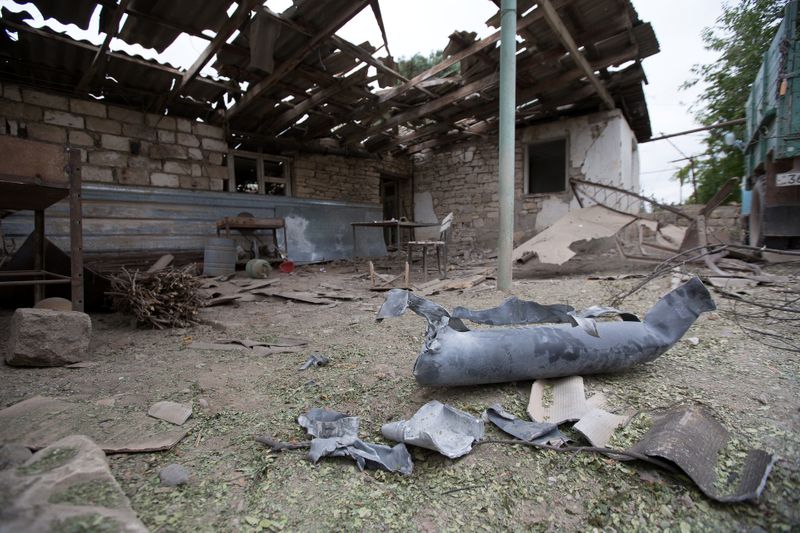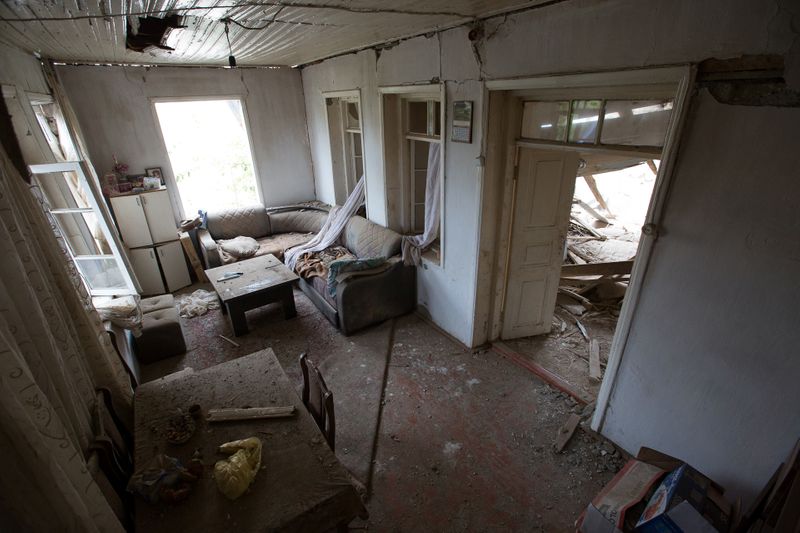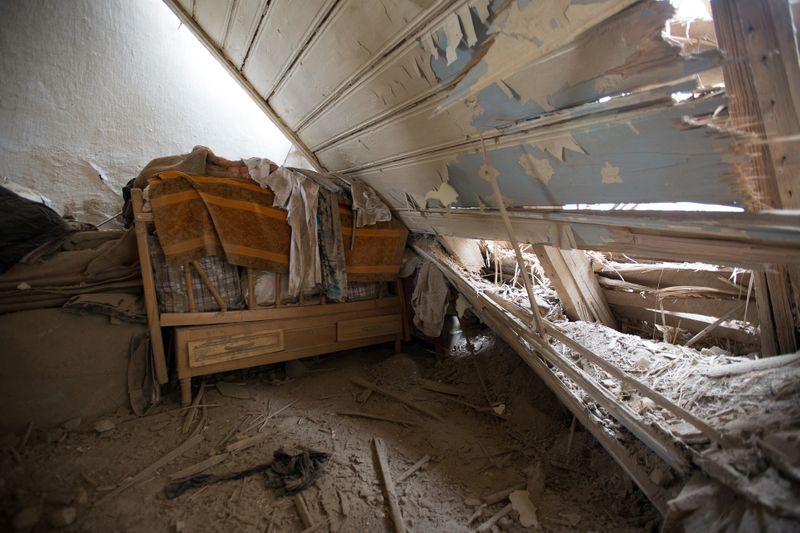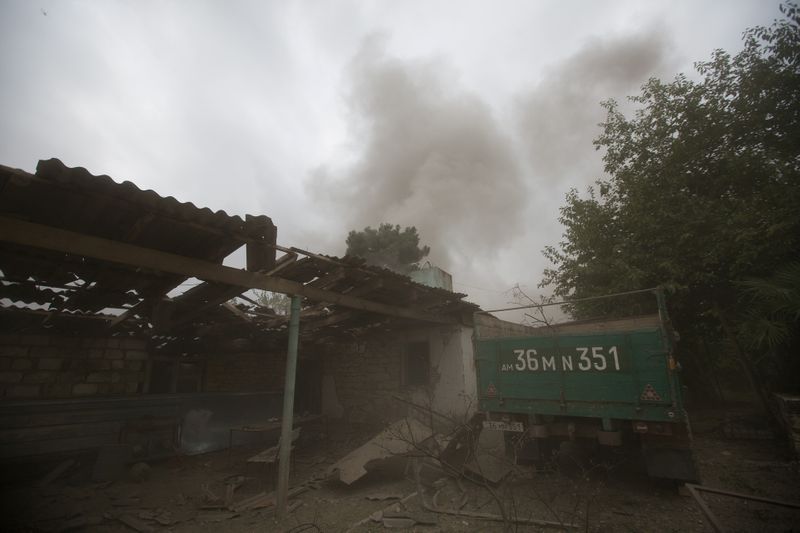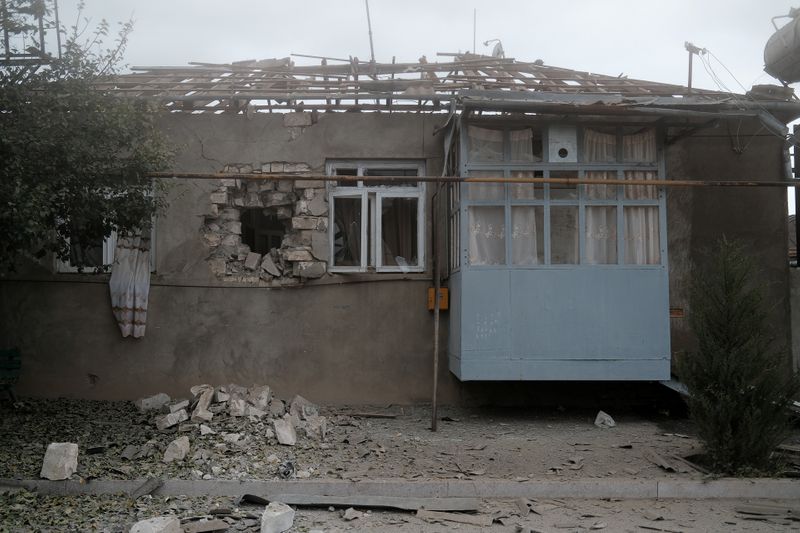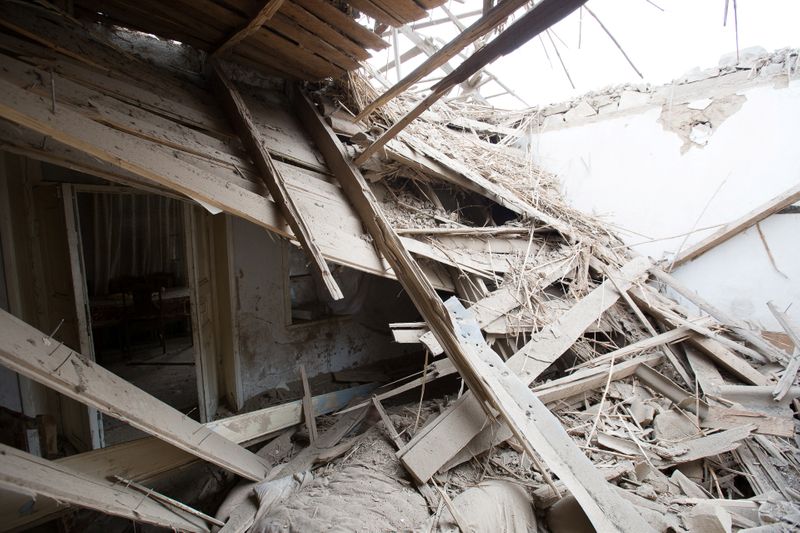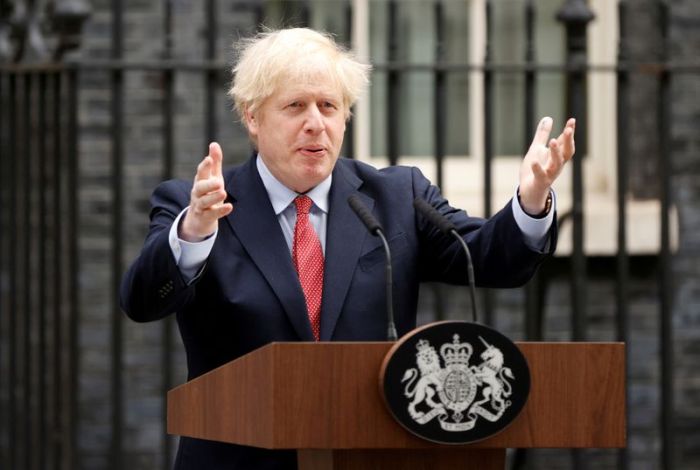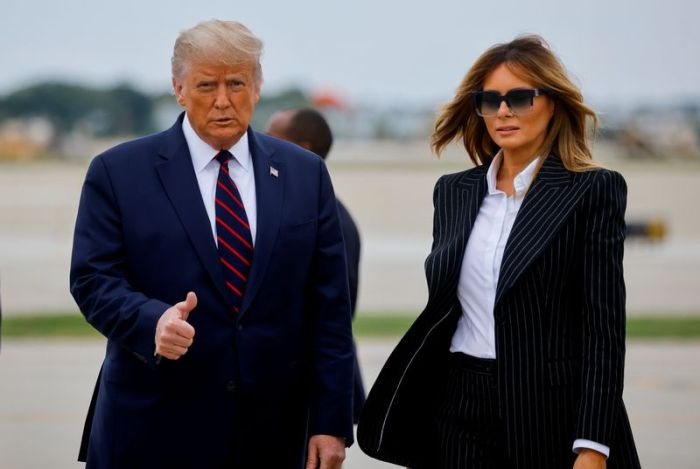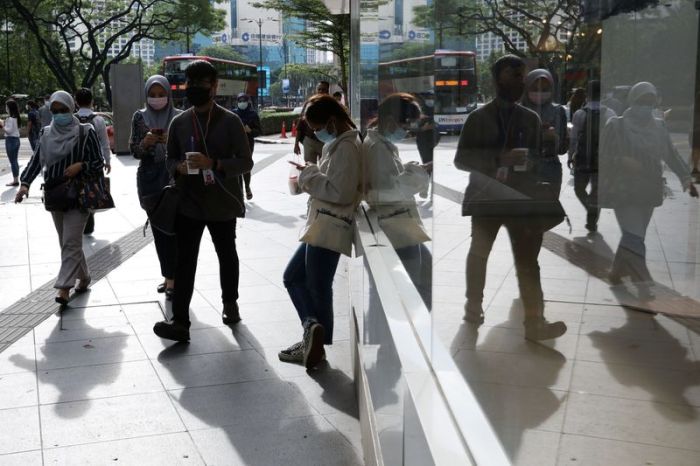BAKU/YEREVAN (Reuters) – The presidents of France, Russia and the United States called on Thursday for an immediate ceasefire between Azerbaijan and ethnic Armenian forces around Nagorno-Karabakh, but Turkey said the three big powers should have no role in peace moves.
France, Russia and the United States are co-chairs of the Organization for Security and Cooperation in Europe’s (OSCE) Minsk Group, set up in 1992 to mediate in the decades-old conflict over the mountainous enclave in the South Caucasus.
They appealed for peace as the death toll rose in the heaviest clashes since the 1990s around Nagorno-Karabakh – part of Azerbaijan, but run by its mostly ethnic Armenian inhabitants.
“We call for an immediate cessation of hostilities between the relevant military forces,” the joint French, Russian and U.S. statement said.
They urged the ex-Soviet republics of Armenia and Azerbaijan to “commit without delay to resuming substantive negotiations, in good faith and without preconditions” under what is called the Minsk process.
But in a speech to the Turkish parliament just before the three countries’ statement, President Tayyip Erdogan said he opposed their involvement.
“Given that the USA, Russia and France have neglected this problem for nearly 30 years, it is unacceptable that they are involved in a search for a ceasefire,” Erdogan said.
He said a lasting ceasefire could be achieved only if “Armenian occupiers” withdrew from Nagorno-Karabakh.
His comments are likely to fuel tension with his NATO allies as fears mount that the conflict could draw in regional powers Russia, which has a military base in majority Christian Armenia, and Turkey, a close ally of mainly Muslim Azerbaijan.
The conflict moved closer to the Armenian capital of Yerevan late Thursday as the government reported four “enemy” drones downed near the city.
Prime Minister Nikol Pashinyan said on social media that the four drones appeared in Armenian airspace in the provinces of Kotayk and Gegharkunik, and Armenian air defence forces had destroyed them. A Reuters witness in the city saw a glowing object in the sky.
MOUNTING DEATH TOLL
Dozens of people have been reported killed and hundreds wounded since Sunday in fighting that has renewed concern about stability in the South Caucasus, a corridor for pipelines carrying oil and gas to world markets.
Nagorno-Karabakh broke away from Azerbaijan in a 1991-94 war that killed 30,000 people, but is not recognised internationally as an independent republic.
Azerbaijan’s civilian death toll has risen to 19, with 55 wounded, its prosecutor general’s office said. Azerbaijan has not reported on casualties among its military forces.
Nagorno-Karabakh has said 103 of its troops have been killed and more than 200 wounded, while 11 civilians have been reported dead and more than 60 wounded.
Armenia said two French nationals working for France’s Le Monde newspaper had been wounded during Azeri shelling of the town of Martuni in Nagorno-Karabakh.
The Nagorno-Karabakh region’s foreign ministry said the two journalists had been operated on by local doctors. An Armenian government source said they were in critical condition and had been transported to Yerevan.
French President Emmanuel Macron and Russian President Vladimir Putin agreed on the need for a ceasefire in a telephone call late on Wednesday. Their joint statement with U.S. President Donald Trump was issued hours later on Thursday.
Macron’s office said he and Putin had shared “concern regarding the sending of Syrian mercenaries by Turkey to Nagorno-Karabakh”.
A Kremlin statement did not mention this. But the Russian news agency TASS quoted the Kremlin as saying the alleged deployment of fighters from Syria and Libya to Nagorno-Karabakh was extremely dangerous.
Russian Foreign Minister Sergei Lavrov and his Turkish counterpart had spoken by phone and expressed their willingness to cooperate closely to stabilise the situation, Lavrov’s ministry said.
Turkey has said it will “do what is necessary” to support Azerbaijan, but has denied sending mercenaries.
Macron, whose country is home to about 600,000 people of Armenian origin, has accused Turkey of “warlike” rhetoric.
A German government source said EU leaders would discuss the conflict at an ongoing summit meeting.
(Additional reporting by Elisabeth Pineau, John Irish and Michel Rose in Paris, by Darya Korsunskaya, Katya Golubkova and Maxim Rodionov in Moscow, and by Daren Butler and Ezgi Erkoyun in Turkey; Writing by Timothy Heritage; Editing by Kevin Liffey, Mark Heinrich and Rosalba O’Brien)

